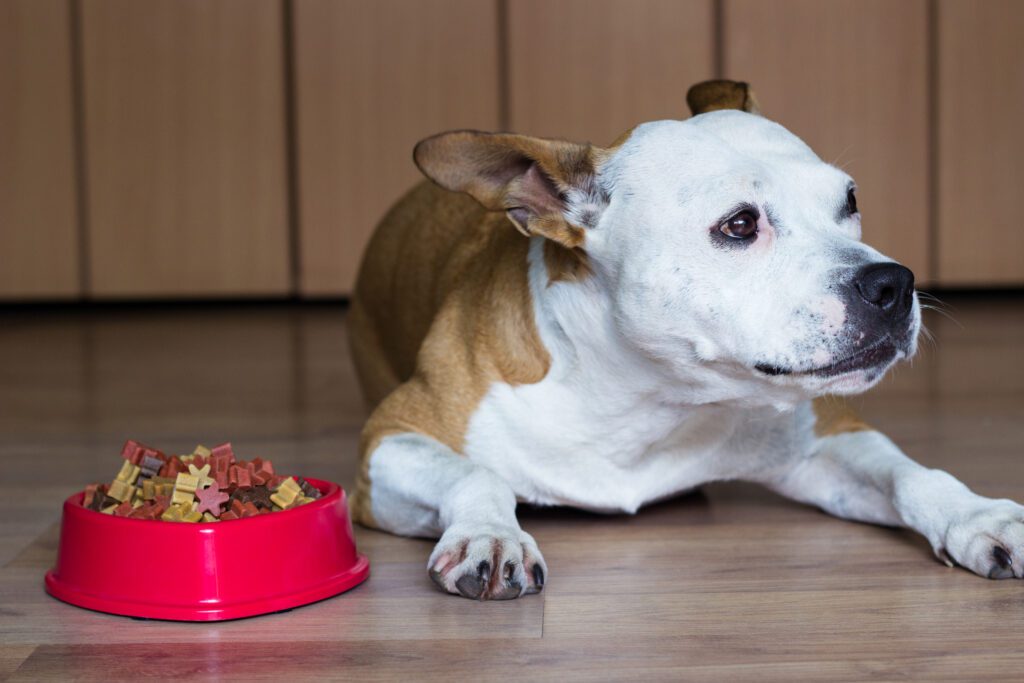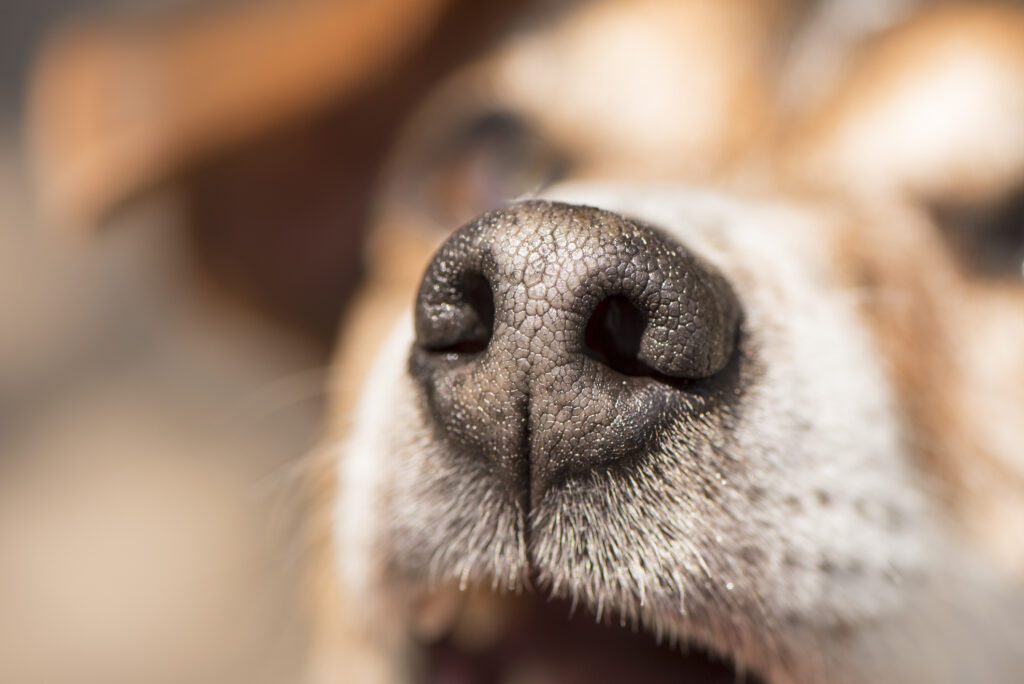6 Signs Your Dog has Allergies
Although some new pet owners may not realize it, allergies are surprisingly common in dogs. Most of the time, a dog’s allergies are mild to moderate and can be managed at home with little intervention. Sometimes, though, canine allergies can be severe and require a vet’s help to handle.
Below, you’ll find a list of six potential signs and symptoms that can let you know your dog has allergies. If you notice your pet experiencing these symptoms, go to the veterinarian for a full checkup as soon as possible.

1. Sneezing
Just like humans, dogs sneeze when they have allergies. Seasonal allergies are the most common cause of sneezing in dogs, but some contact allergies and even some food allergies can contribute to excessive sneezing, too.
Sneezing on its own without any other symptoms on this list may not be related to allergies at all. With no other sign of allergies, your dog’s sneezing is probably part of their normal dog communication. Dogs sneeze for a variety of reasons that have nothing to do with their health at all!
2. Wheezing
Wheezing is another frequent sign of allergies in dogs. Mild wheezing, especially when accompanied by other symptoms on this list, typically indicates mild to moderate allergies in your pet. More significant wheezing, however, may mean that your dog is having trouble breathing due to an airway obstruction. Go to the emergency vet for significant wheezing right away.
Wheezing can be a sign that your dog needs a little assistance dealing with their allergies, too. Talk to your regular vet if your dog’s allergy symptoms include frequent wheezing, as they may need to take medication to combat this problem.
3. Runny Nose
A runny nose also frequently indicates allergies in dogs. If your dog’s nose runs after they were outside during high pollen times of the year, or if it runs after they have been exposed to allergens and contaminants in the environment, then allergies are the likely culprit.
On the other hand, if your dog’s nose is running and they seem to have trouble breathing through it, this could indicate an airway obstruction or a nasal polyp. A runny nose can also sometimes by caused by dental health problems, so it’s important to check your dog’s mouth just in case, too.
4. Watery or Red Eyes
Watery eyes go along with sneezing, wheezing, and a runny nose as some of the more common symptoms of canine allergies. Humans and dogs alike may experience watering and tearing of the eyes as an overall physical response to allergy. This symptom may also occur if your dog’s eyes are exposed to an allergen specifically—for example, if they get smoke in their eyes.
Red eyes can also be a sign of allergy, especially with other symptoms on this list. Red eyes may also indicate more serious problems with your dog’s eye, though, especially if the redness is only present in one eye at a time. Talk to your vet for more information.
5. Itchy Skin
Itchiness of the skin can mean that your dog is dealing with seasonal or contact allergies. It could also mean they are allergic to the detergent you use when washing their bedding, or to the shampoo you use when bathing your pet.
Sometimes, itchy skin is related to flea allergies or even to food allergies. If your dog’s scratching is excessive, they likely has some sort of allergy causing the issue, and should see a vet to clear it up.
6. Poor Coat Health
Finally, poor coat health can be a symptom of an underlying allergy problem. It is typically associated with food allergy in many dogs. If your dog has a food allergy, their coat may look dull, dry, or brittle, and they may have patchy hair loss as well. Dandruff is another symptom.
The good news is that most food allergies can be quickly resolved by simply changing your dog’s diet. Transition your dog to another main protein source, and always choose high-quality food that doesn’t contain any unnecessary filler ingredients for best results. Your vet can recommend a good food for your pet.
Talk with Heart + Paw About Your Dog’s Allergies
Many times, dogs who experience symptoms on this list will only suffer from mild allergies. It is normal and nothing to worry about if your dog has a little bit of seasonal allergies now and then, for example. But since dog allergies can sometimes be serious, it’s important to have your pet examined by a vet to figure out just how severe the problem really is.
Your vet can help you determine the cause of your pet’s allergies and the severity of the symptoms. From there, the vet can work with you to choose the right treatment and management solutions for your dog.
Use the online form to book an appointment with your Heart + Paw veterinarian at one of our locations today!
Recent Posts
How Dog Skin Infections Can Cause Your Pet to Be Itchy
We all know that look of discomfort on our furry friend’s face when they can’t stop scratching….
10 Signs That Your Dog Has Food Allergies
You know your fur baby better than anyone else. You notice when they’re wagging their tail more…
Is it Normal for My Dog to Have a Dry Nose?
So, you’ve noticed that your dog’s nose is a bit on the dry side, and now you’re…
Cat Wheezing: Causes and Treatment Options
We know that when your feline friend starts wheezing, it’s easy to get concerned. After all, our…
When Cat Drooling is Normal and When it is Not
If you’re here, chances are you’ve noticed your feline friend drooling a bit more than usual. Maybe…
About Us
Heart + Paw was founded in 2018 by Chief Veterinary Officer Dr. George Melillo, who currently serves the Mid-Atlantic area. Heart + Paw offers a combination of veterinary care, pet grooming, and dog daycare to help be a resource in your pet parenthood journey.
We'd Love to Meet Your Four-Legged Friends
Find out how the friendly veterinary team at your local Heart + Paw can help your pets live longer, healthier lives by searching for a location near you.





